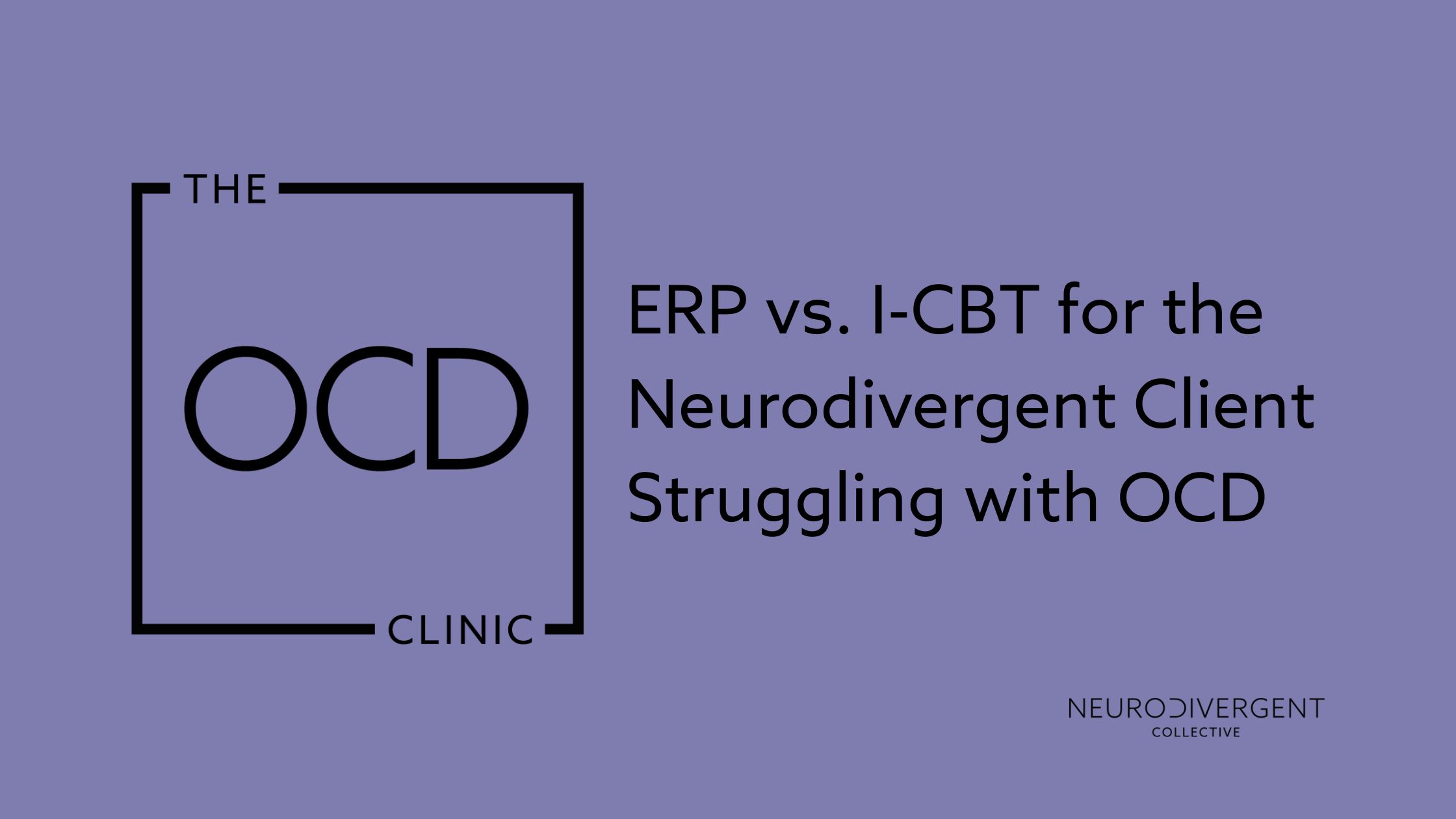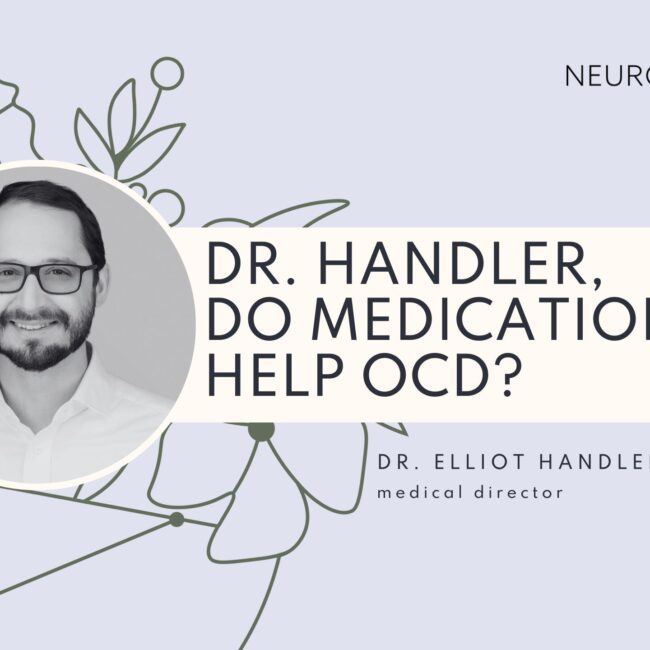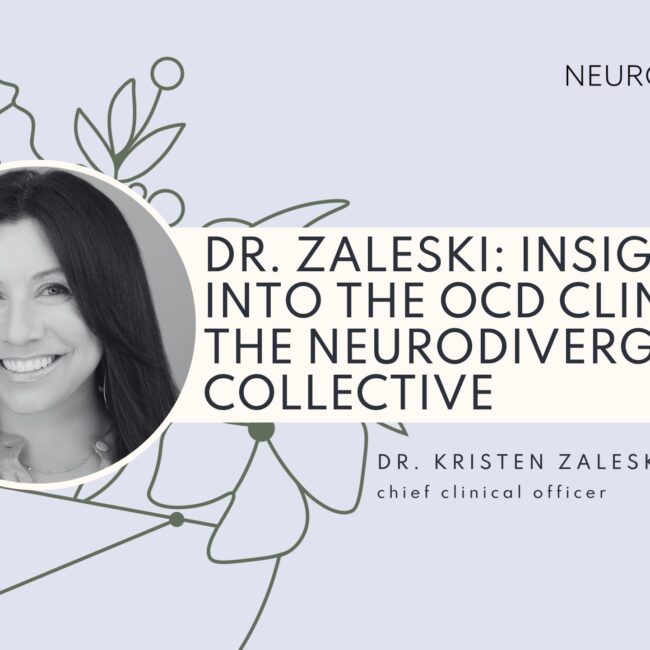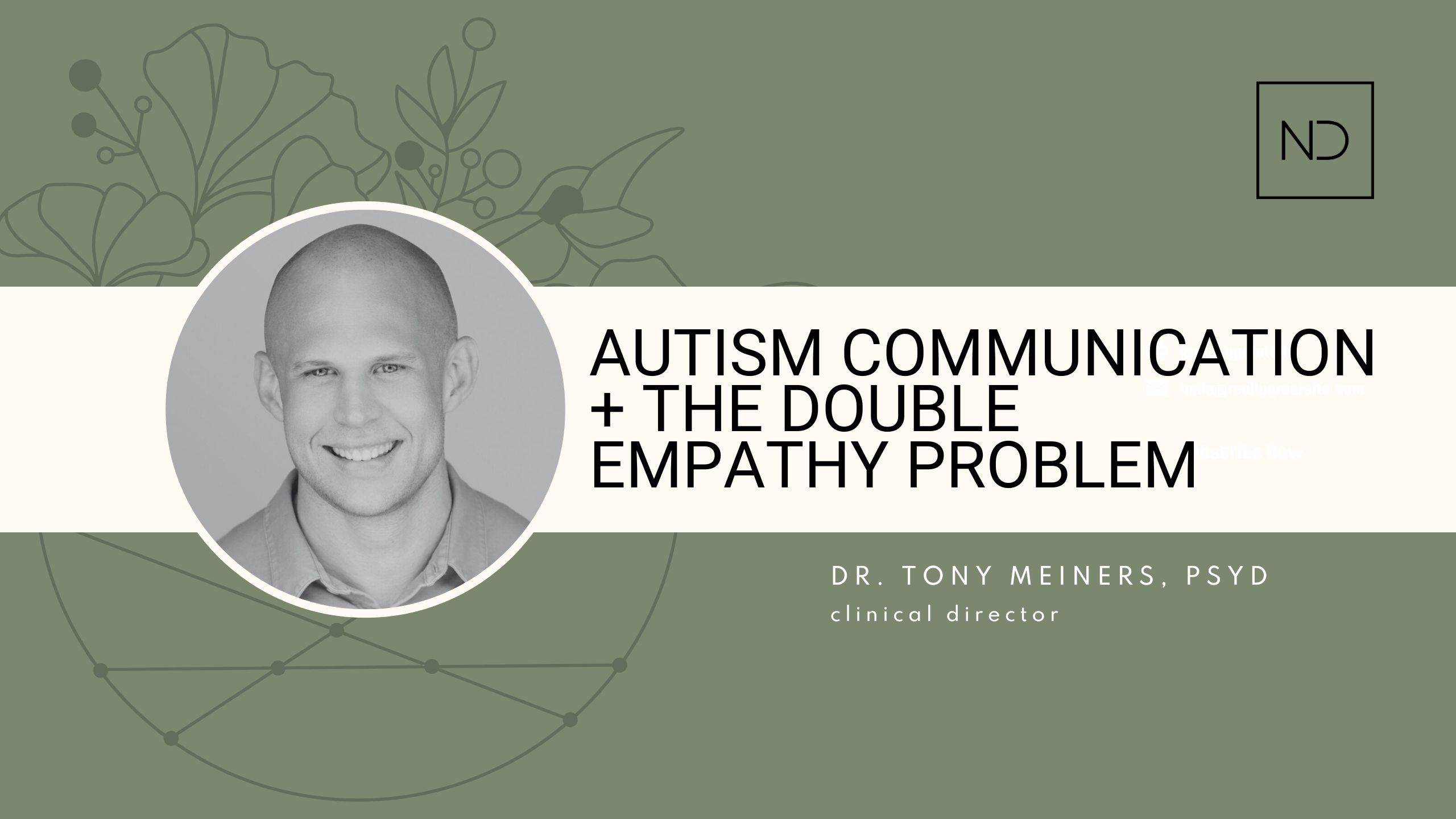
ERP vs. I-CBT for the Neurodivergent Client Struggling with OCD
For neurodivergent clients (including those with Autism, ADHD, or co-occurring trauma) struggling with Obsessive-Compulsive Disorder (OCD), selecting the right therapeutic approach is paramount. Differences in sensory processing, executive functioning, and cognitive styles mean that the standard “gold-standard” treatment may not always be the best fit. We compare the two leading evidence-based therapies: Exposure and Response Prevention (ERP) and Inference-Based Cognitive Behavioral Therapy (I-CBT).
Exposure and Response Prevention (ERP)
ERP is the most researched and most popular behavioral treatment for OCD. It operates on behavioral extinction and habituation. It involves gradually and systematically exposing a person to feared thoughts, images, or situations (exposure) while preventing their usual compulsions or avoidance behaviors (response prevention). Over time, this weakens the association between obsessions and compulsions, leading to reduced anxiety and an improved quality of life.
- Why it can be effective for Neurodivergent Clients: Its highly structured, step-by-step nature can appeal to clients who thrive on clear protocols and measurable outcomes.
- The Neurodivergent Challenge: The core exposure component can be intensely challenging for clients with high sensory sensitivity (common in Autism) or acute hypervigilance (common with co-occurring PTSD/trauma). These experiences can lead to rapid nervous system dysregulation, making effective habituation difficult and potentially increasing the risk of burnout or dropout.
ERP Pros | ERP Cons |
Strongest evidence base; widely considered the frontline treatment. | Often experienced as distressing or overwhelming, potentially impacting early drop out rates. |
Directly targets compulsions and avoidance, leading to measurable behavioral change. | Some clients feel it doesn’t address the reasoning behind obsessions or lead to resolution of doubts. |
Inferential Cognitive Behavioral Therapy (I-CBT)
Inferential-Based CBT (I-CBT) is an evidence-based treatment for OCD that offers a cognitive pathway to recovery. Unlike approaches that focus on managing compulsions, I-CBT targets the obsessive reasoning process that fuels doubt. Central to this is inferential confusion—the mechanism by which sufferers confuse possibility with reality, distrusting their direct experience (sensory information) and relying instead on imagined scenarios as if they were fact.
I-CBT treatment guides clients to recognize when they are engaging in obsessional reasoning, to distinguish imagination from reality, and to see that obsessional doubts naturally lose their weight once understood at their source. Crucially, exposure treatment is not part of I-CBT therapy.
- Why it can be effective for Neurodivergent Clients: It is particularly well-suited for individuals who are highly reflective, analytical, or detail-oriented. It leverages their cognitive strengths to dissect the logic of the doubt, offering a way out that bypasses potentially triggering behavioral interventions.
I-CBT Pros | I-CBT Cons |
Focuses on the cognitive roots of obsessions (inferential doubt), rather than just managing compulsions. | Evidence base is growing, but it is newer than ERP, so less research has been completed and published. |
Focuses on obsessional reasoning and compares it to normal reasoning. | Requires strong abstract reasoning skills, which may not suit all neurodivergent profiles. |
Doesn’t require behavioral intervention (no exposures). | Not as widely available; fewer trained clinicians compared to ERP. |
It can provide deeper insight into how thoughts and doubts develop. |
When One May Be Better Than the Other
The choice is a crucial clinical decision, never a matter of using both simultaneously, as their core mechanisms are contradictory.
Choose ERP First:
- ERP is first-line treatment for OCD and is the recommended starting point for many clients due to its robust evidence base. It should be chosen initially to determine if the client can benefit from its powerful behavioral impact.
Choose I-CBT When:
- ERP is poorly tolerated or risks decompensation due to high sensory sensitivity (e.g., Autism) or acute hypervigilance (e.g., co-occurring PTSD) that prevents effective habituation.
- The client is highly reflective or analytical and struggles primarily with cognitive doubt rather than behavioral regulation.
- The client has not had success with ERP or is too acutely impacted with behavioral interventions.
Do you have a question?
Send us a message






